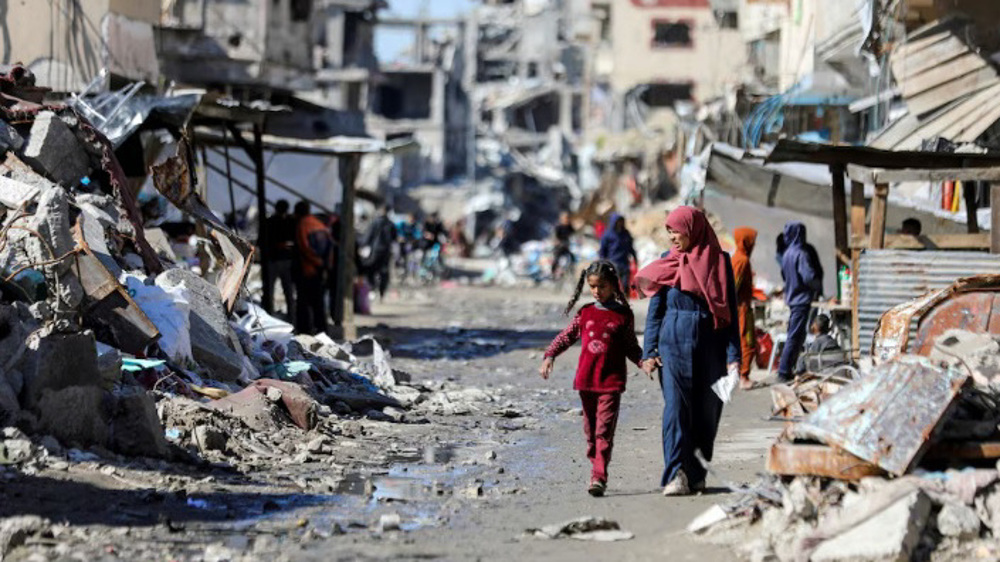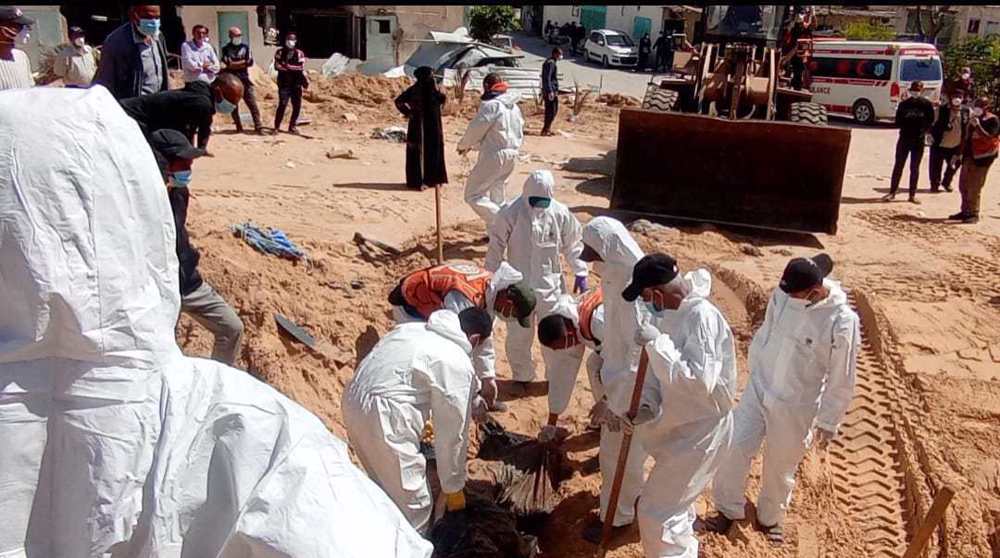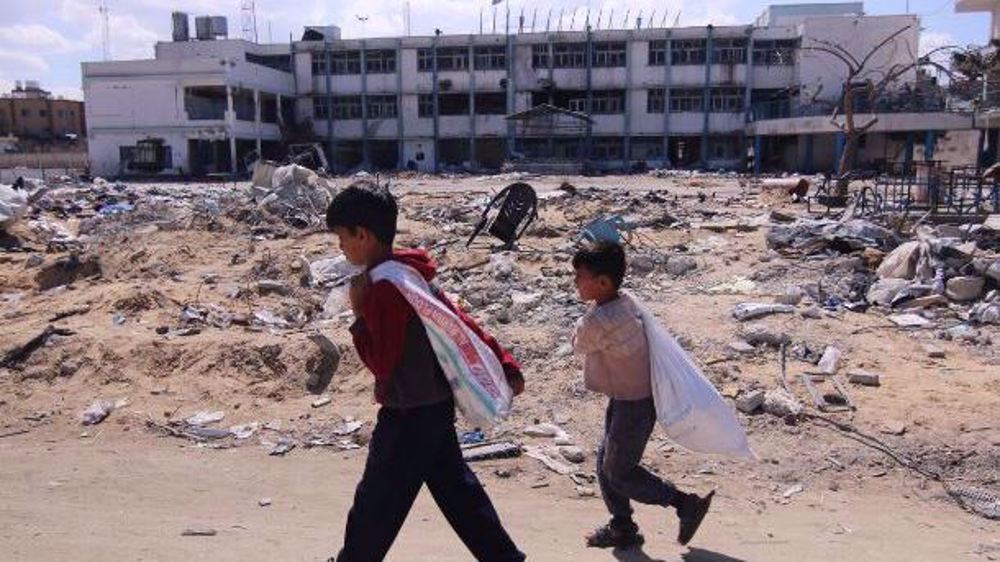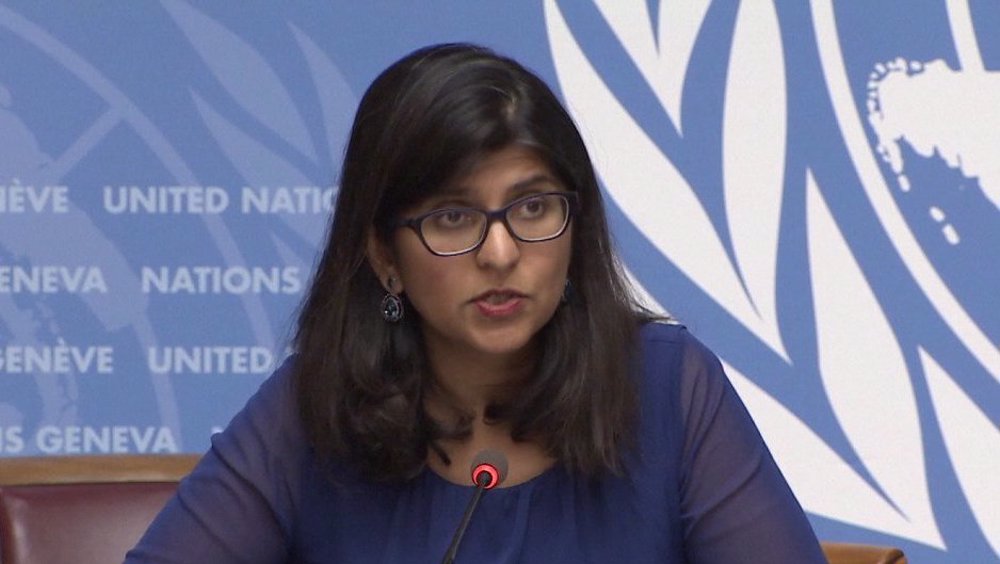Iran raps Israel’s systematic environmental destruction in West Bank, Gaza Strip
The spokesman for the Iranian Foreign Ministry has strongly denounced the Israeli regime over irreversible environmental destruction and disastrous economic and health consequences in the occupied West Bank and war-torn Gaza Strip.
“On the occasion of Earth Day, it is best to strongly condemn the inhumane and shameful behavior of the Zionist regime regarding the systematic environmental destruction in the Gaza Strip and the West Bank, and its purposeful destructive actions as a means to pressure the oppressed Palestinian nation,” Nasser Kan’ani wrote in a post published on the social media platform X on Sunday.
He called upon the international community and relevant institutions to adopt prompt and appropriate measures aimed at immediate cessation of all forms of crimes as well as inhumane and anti-environmental actions of Israeli forces across Palestinian territories.
Israel launched its atrocious onslaught against the Gaza Strip, targeting hospitals, residences, and houses of worship since Palestinian resistance movements launched a surprise attack, dubbed Operation al-Aqsa Storm, against the usurping regime on October 7.
At least 34,097 Palestinians have been killed, most of them women and children, and another 76,980 individuals have sustained injuries. More than 1.7 million people have been internally displaced during the war as well.
Experts have already warned that Palestinians living in Gaza, if they survive, will face an “uninhabitable” territory for decades to come because of the deadly impact of the ongoing war.
From smoke-filled air to the long-term contamination of groundwater with hazardous waste, and the toxic debris poisoning the very land Palestinians call home, the repercussions of the dire spike in pollution levels are vast and interconnected with the strip’s deepening humanitarian crisis.
Against this backdrop, the United Nations Environment Programme (UNEP) has begun to assess the grave environmental impact of the ongoing genocidal war on Gaza.
During the sixth session of the United Nations Environment Assembly in Nairobi, Kenya, in February, UNEP’s executive director Inger Andersen said upon an official request from the Palestinian government that the UN body will carry out an assessment of the environmental impacts of the war on Gaza.
“The goal of such assessments is always to track the extent of damage and inform a science-based approach to recovery and reconstruction when conditions allow,” Andersen said, urging an end to the war to address the environmental toll of the devastating war.
According to the UN Office for the Coordination of Humanitarian Affairs (OCHA), 22.9 million tons of debris have been generated due to the destruction of properties, mainly residential units.
The UN agency estimates that it would take around eight years to clear the debris, given existing capacities in the blockaded and war-ravaged territory.

Israel achieved none of its war objectives in Gaza: Iran FM

Iran’s top security official calls for establishing peace, stability in Sudan

Leader dismisses US displacement plan for Gaza as ‘foolish, futile’
US special envoy in Kiev amid war of words between Trump, Zelensky
Hamas says ready to free all Israeli captives at once in phase two of truce
Israel kills one, injures two in southern Lebanon: Media
‘Colonial powers’ have no right to determine fate of Palestine: Qalibaf
Explainer: Why are MK-84 2,000-lb bombs approved by Trump for Israel so deadly?
President Pezeshkian: Iran, Qatar opening new avenues for cooperation
VIDEO | Displaced return home despite destruction
IRGC unveils new homegrown smart missiles, drones drill


















 This makes it easy to access the Press TV website
This makes it easy to access the Press TV website